Q-Chem 6 Webinar | |
| August 5, 2024 | |
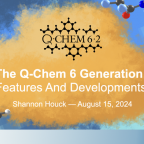
| The Q-Chem open-teamware project, like the field of quantum chemistry itself, has come a long way since 1993! Research groups across the globe use Q-Chem's code base to develop and pioneer new theoretical chemistry methods, and most of these developers choose to integrate their new methods back into the Q-Chem code for others to use in their own research endeavors. This webinar, given by the Q-Chem office, will highlight many of the cutting-edge features available in the Q-Chem 6 generation… Read More |
Q-Chem Webinar 73: PBC Development In Q-Chem (Wormit Award) | |
| July 13, 2024 | |
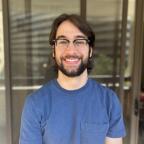
| The study of periodic systems has historically been dominated by plane wave basis sets, but the use of atom-centered Gaussian type orbitals (GTOs) is becoming increasingly common in the current computational landscape. Q-Chem has a wealth of GTO-based features developed over multiple decades, and the development of Q-Chem's PBC package (QCPBC) has allowed the application of a core set of these features to periodic systems. In this webinar, I will highlight the recent advancements of QCPBC,… Read More |
Q-Chem 6.2 Is Now Available! | |
| May 6, 2024 | |
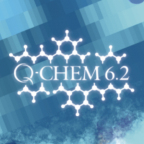
|
Q-Chem is pleased to announce the release of Q-Chem 6.2. A wide variety of new features have been added, including new methods for modeling Auger decay, several new features related to X-ray spectroscopy (such as the DFT/CIS semi-empirical method), a variety of new NEO methods (including real-time NEO approaches, multistate NEO, SCS-RIMP2, and SOS-OOMP2), and many more! For a full list of new features and bugfixes, please … Read More |
Q-Chem Webinar 72: Multiscale free energy simulations of biochemical reactions using QMHub | |
| April 9, 2024 | |

| The webinar focused on Xiaoliang's development of the open-source package QMhub, an interface for QM/MM simulations which is designed to work with Q-Chem, and will include a demonstration of how to use IQmol to study enzymatic reactions. Quantum-mechanical/molecular-mechanical (QM/MM) free energy simulations have been shown to be a valuable tool to accurately model chemical processes in bimolecular systems. However, the high computational… Read More |
Register for the 2023 Q-Chem Developer Meeting! | |
| December 17, 2023 | |
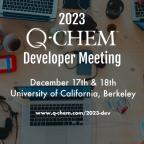
| We are pleased to announce that the 2023 Q-Chem Developer Meeting will be happening on December 17–18 at the University of California, Berkeley. This meeting will focus on providing a gentle introduction to the process of developing within Q-Chem, and will include lectures presented by the Q-Chem team and board members, tutorial sessions, and hands-on hackathon sessions. Lunch will be provided on both days, and a social hour will be happening on Sunday evening, for those who would like to… Read More |
Q-Chem 6.1.1 Release | |
| December 6, 2023 | |
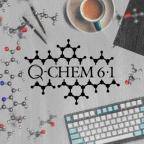
| Q-Chem is pleased to introduce our latest release, Q-Chem 6.1.1. It includes several bugfixes and improvements to the recent 6.1 release. For a full list of updates, fixes, and resolved issues, please review the 6.1 changelog here. Any of our customers who have purchased Q-Chem 6.1 can upgrade to 6.1.1 for free. Upgrade your copy of Q-Chem here! If you haven't bought 6.1 yet… Read More |
Call for Nominations: 2024 Nick Besley Award | |
| December 4, 2023 | |

| Q-Chem is now accepting nominations for the 2024 Nick Besley Award! This annual award recognizes excellence in the development or application of new methods for computational spectroscopy in the Q-Chem open-teamware community project. It includes a certificate and a $500 prize, as well as an invitation to give a Q-Chem webinar on the recipient's work. The award commemorates the contributions of Prof. Nick Besley, who is remembered for his multi-faceted contributions to excited-state… Read More |
Call For Nominations: 2024 Wormit Award | |
| December 4, 2023 | |
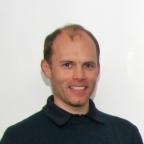
| Q-Chem is now accepting nominations for the 2024 Michael Wormit Award! This award recognizes excellence in the development of new methods and algorithms in the area of electronic structure, and implementation within the Q-Chem open teamware community project. The award includes a certificate and $500 prize, as well as an invitation to present a special Q-Chem webinar on the recipient's work. It commemorates the contributions of Dr. Michael Wormit, who is remembered for his state-of-… Read More |
Q-Chem President Anna Krylov Awarded Barry Prize | |
| November 14, 2023 | |
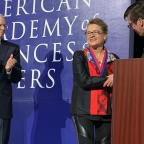
| Congratulations to Q-Chem President Anna Krylov on receiving the inaugural Barry Prize for Distinguished Intellectual Achievement from the American Academy of Sciences and Letters (AASL). This award recognizes scholarly excellence across a wide breadth of fields. Prof. Krylov was recognized for her significant contributions within the field of quantum chemistry, as well as her dedication to science communication, mentorship, collaboration, and advocacy. |
Q-Chem 2023 Holiday Sale! | |
| November 1, 2023 | |
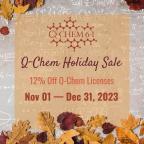
| Happy holidays! It's time for Q-Chem's annual holiday sale, happening in November and December! A 12% discount will be applied to all license orders and license upgrades placed directly with Q-Chem before the end of December 2023. (Please note: This sale does not apply to reseller sales.) |
Q-Chem 6.2.2 Is Here! |
| November 21, 2024 |
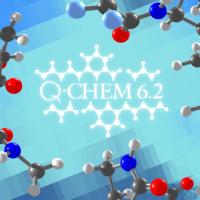
|
Q-Chem is pleased to introduce our latest release, Q-Chem 6.2.2. It includes several bugfixes and improvements to the recent 6.2 release, and an official version for Mac computers with Apple… Read More |
Q-Chem's Annual Sale is Here! |
| November 1, 2024 |

|
The holidays are almost upon us, and you know what that means: It's time for Q-Chem's annual sale! Get a 12% discount on all license orders and license upgrades placed directly with Q-Chem (not… Read More |
Now Available: A New Parameterization of the DFT/CIS Method with Applications to X-ray Spectroscopy |
| October 24, 2024 |

|
Our latest Q-Chem webinar (Webinar 77), which was presented by Aniket Mandal on October 24, is now available! You can view the archived recording of the webinar here.… Read More |
Q-Chem Developer Ka Un Lao Wins ACS COMP Outstanding Junior Faculty Award |
| October 23, 2024 |
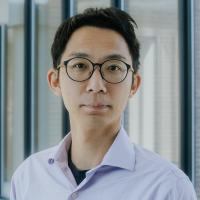
|
Congratulations to Q-Chem developer Prof. Ka Un Lao, of Virginia Commonwealth University, on being awarded the prestigious ACS COMP’s OpenEye Cadence Molecular… Read More |
2024 Fall Q-Chem Workshop |
| October 13, 2024 |

|
The 2024 Fall Q-Chem User Workshop took place in person on the morning of October 13th from 9AM to 1PM at Huanghai Hotel, before the beginning of the ISTCP conference in Qingdao,… Read More |